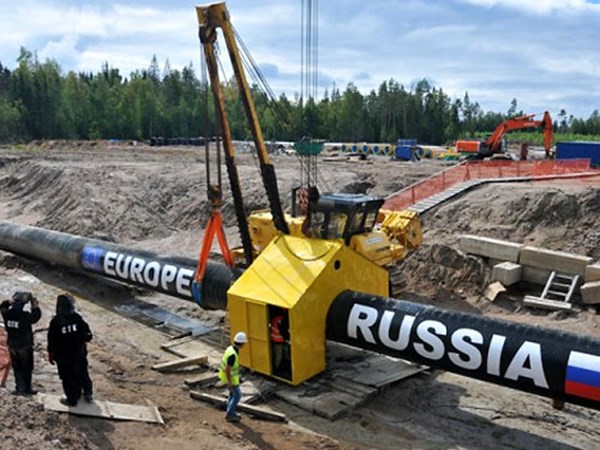Naftogaz director on Nord Stream 2: Germany facilitating economic strangulation of Ukraine
Naftogaz group executive director Yuriy Vitrenko believes that by participating in Russia’s Nord Stream 2 project, Germany is facilitating the economic strangulation of Ukraine and creating threats to the stability of the gas supply to Eastern Europe.
He explained his view to Deutsche Welle in an interview when asked whether Germany will be taking away Ukraine’s role as the primary transiter of Russian gas to Europe.
“It’s not taking over the role of primary transiter, it’s that there won’t be transit through Ukraine at all,” said Vitrenko.
“With the launch of Nord Stream 2 one can expect that there will be no transit through Ukraine. And Germany must understand that, in so doing, it is facilitating the economic strangulation of Ukraine. Revenue from transit is very significant to the Ukrainian economy, and the entire Ukrainian and Eastern European gas market was established on the expectation that gas will go from east to west. Such radical changes – now gas will have to go from west to east, to the east of Ukraine at least – are a threat to the supply stability in the region,” said the senior manager of Naftogaz.
He believes that Germany, as one of the leaders of the European Union, should understand this.
Vitrenko said previously that the loss of revenue from transporting Russian gas could cause Ukraine’s GDP to drop by 0.7%.
On January 1, 2020, the current 10-year gas transit contract between Naftogaz of Ukraine and the Russian gas monopoly Gazprom will expire.
With the help of the European Commission, Ukraine has been trying to get Gazprom to sign a new 10-year contract for the transit of up to 90 billion cubic meters per year. However, Naftogaz is skeptical whether it will be signed, and Vitrenko said that the company should prepare for gas transit to stop in 2020.
In 2020, Russia expects to complete the Nord Stream 2 pipeline, which will enable it to minimize its use of Ukraine’s gas transportation system.
